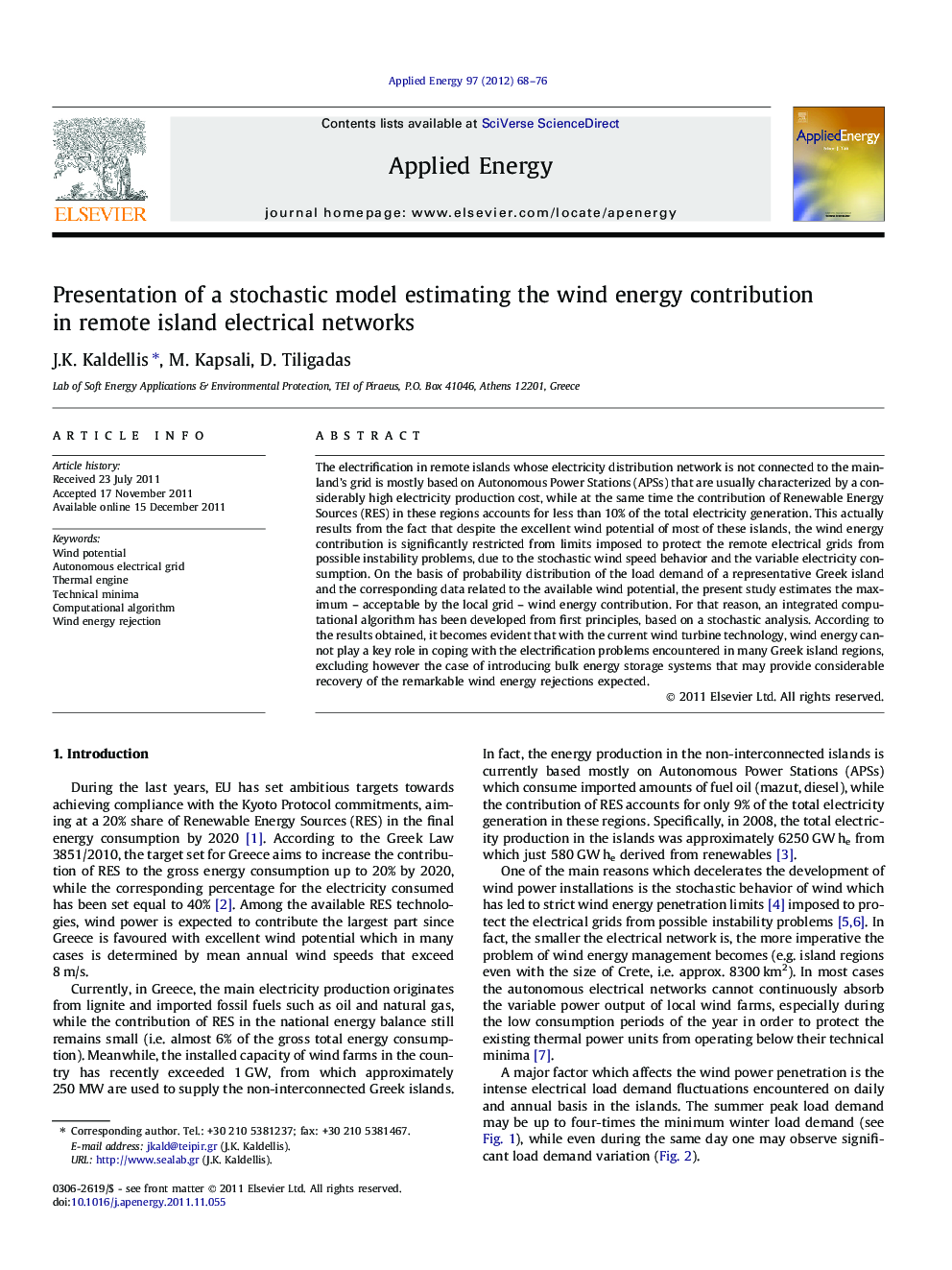| Article ID | Journal | Published Year | Pages | File Type |
|---|---|---|---|---|
| 243483 | Applied Energy | 2012 | 9 Pages |
The electrification in remote islands whose electricity distribution network is not connected to the mainland’s grid is mostly based on Autonomous Power Stations (APSs) that are usually characterized by a considerably high electricity production cost, while at the same time the contribution of Renewable Energy Sources (RES) in these regions accounts for less than 10% of the total electricity generation. This actually results from the fact that despite the excellent wind potential of most of these islands, the wind energy contribution is significantly restricted from limits imposed to protect the remote electrical grids from possible instability problems, due to the stochastic wind speed behavior and the variable electricity consumption. On the basis of probability distribution of the load demand of a representative Greek island and the corresponding data related to the available wind potential, the present study estimates the maximum – acceptable by the local grid – wind energy contribution. For that reason, an integrated computational algorithm has been developed from first principles, based on a stochastic analysis. According to the results obtained, it becomes evident that with the current wind turbine technology, wind energy cannot play a key role in coping with the electrification problems encountered in many Greek island regions, excluding however the case of introducing bulk energy storage systems that may provide considerable recovery of the remarkable wind energy rejections expected.
► This study estimates the maximum wind energy contribution to an isolated micro-grid. ► An integrated computational tool is developed on the basis of stochastic analysis. ► The probability distribution of the wind energy surplus and deficit is estimated. ► The results indicate that a strict penetration limit is imposed to wind energy.
